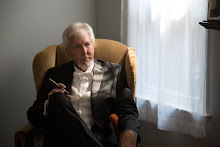I recall the vast number of people I’ve met at my author’s readings that claim to want to write a novel. A little Internet research revealed to me that an estimated 230,000,000 Americans think they have a novel in them. Of that number, only about 5% — or little more than 11,000 — ever feel the satisfaction of typing “The End” on the last page; fewer still ever feel the pride of seeing their work in print. Those who persevere not only through the agony of the writing process but also through the search for an agent or a publisher, dealing with rejection, to overcome tremendous odds to see their work published feel part of a very elite club, and rightfully so. So why don’t more aspiring writers see their dream through to The End?
I read somewhere, and I agree with the assessment, that writing the first and last third of a novel is easy, but writing the middle third is very difficult. In other words, the beginning and the ending are easy. It’s the long haul in between that’s hard. But this assessment speaks only of the writing part; what of the preparation that precipitates the actual writing? This is often where many new writers get derailed. I know I was when I was contemplating my first novel, January’s Paradigm.
I had my idea — a good idea. I had a rough outline about the plot, had developed all my main characters and some of the secondary and tertiary characters. I even had an idea who my audience was. Yet with all that in hand I still successfully procrastinated commencing writing for months. What kept me from writing that novel for so long? I did.
Writing a novel is like committing to a football season. It demands dedication and it requires hard work. Many aspiring writers can envision the glamour of seeing their book on the best seller table in their favorite bookstore, but they can’t see the work it will take to get it there. Football fans celebrate along with their favorite team when it wins the Super Bowl; but few recall the brutal 16-game schedule, plus the tough playoff games that had to be won in order to play that final big game on the first Sunday in February. Furthermore, the casual fan doesn’t see the grueling workouts that begin in August, before the season begins, and the practice sessions during the week, running countless plays (some which may not ever be called under game conditions), and the hours sitting watching game films, with no guarantee that the team will win their game on Sunday, let alone make the playoffs and go on to play in the Super Bowl. This is dedication and hard work. Writing a novel requires the same dedication and hard work, but against an opponent you can’t see because that opponent is you. And like the football team that starts the season 0-0 but with no guarantee of making it to the Super Bowl, you also have no guarantee that your book will make it off a potential agent’s slush pile let alone onto the Best Seller List.
Perhaps the most brutal part of writing a novel is that it is such a solitary endeavor. A football team that wins on Sunday can feel good about itself, at least for another week; if they lose and get booed, well, in another week they can play better and turn those boos into cheers. A football team can win with one or two key players hurt or having a bad game because the other players can step up their game. But a writer must do it on his or her own. He’s often his own worst enemy, and he must overcome obstacles that he sets before himself. A dedicated writer who works hard day in and day out receives little in the way of cheers or external inspiration. In short they must rely on their belief in themselves. Day by day, page by page, week by week, chapter by chapter, month by month they must dedicate themselves to their solitary endeavor, perhaps sharing an occasional excerpt with a family member or in a writer’s group. Is it any wonder that most aspiring writers give up before ever writing the first word of their novel?
Once I sat down and wrote the first sentence of January’s Paradigm, which I’d written in my mind’s eye weeks before I ever sat down and typed it, the rest came, well, maybe not easily, but certainly naturally, and more easily than I had imagined. Sure there were bumps along the way, some roadblocks, diversions and digressions; but I always kept my eye on the horizon, on the final sentence, which, coincidentally, I’d also written long before I typed the first sentence.
Now whenever someone approaches me at a reading to tell me they have a book in them to write and I ask them why they haven’t written it, and they reply, “I wouldn’t know where to begin,” I always respond, “How about in front of a keyboard?”
Wednesday, November 29, 2006
Subscribe to:
Post Comments (Atom)

No comments:
Post a Comment